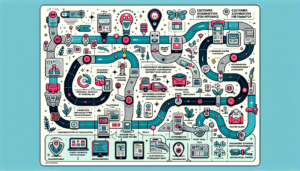In today’s fast-paced digital environment, innovations in customer support are not merely desirable—they are essential for businesses striving for competitive advantage. Platforms like Zendesk and Intercom are spearheading this evolution with cutting-edge trends that promise enhanced customer experience and operational efficiency. These innovations are reshaping the customer support landscape, providing fresh opportunities for businesses to thrive in an increasingly customer-centric world.
AI-Powered Automations
Artificial Intelligence (AI) is at the forefront of customer support innovation. Both Zendesk and Intercom have integrated AI to automate routine support tasks, freeing up human agents for more complex queries. AI bots can now handle a wide range of customer interactions, from answering FAQS to offering tailored solutions based on past customer data.
Data suggests that automation can lead to increased efficiency by up to 30% and significantly reduce response times. Businesses that leverage AI automation can not only improve customer satisfaction but also reduce operational costs. AI-powered solutions such as chatbots can operate 24/7, providing continuous support without the need for human intervention.
Omnichannel Support
Customers today expect seamless service across various platforms—be it social media, email, live chat, or phone. Zendesk and Intercom support omnichannel capabilities that allow customers to interact with businesses through their preferred communication medium, ensuring a cohesive and consistent support experience.
An effective omnichannel strategy can boost customer satisfaction by 25%. Businesses adopting such systems enjoy enhanced customer engagement, as interactions across different platforms are tracked and unified into a single, coherent conversation history. This approach not only enriches the customer experience but also equips support teams with complete context for every interaction.

Predictive Analytics
Predictive analytics is transforming customer support by allowing businesses to anticipate customer needs before they surface. Powered by machine learning, platforms like Zendesk and Intercom can analyse historical data to predict customer behaviour, personalising support interactions and enhancing customer satisfaction.
With predictive analytics, businesses can identify potential issues before they arise, offering proactive solutions that delight customers. By forecasting trends and customer needs, companies can tailor their services to meet the evolving expectations, improving loyalty and retention rates.
Self-Service Portals
Modern customers increasingly demand control over their support experiences, leading to a rise in self-service solutions. Zendesk and Intercom have developed robust self-service platforms, including comprehensive knowledge bases and community forums where customers can find answers independently.
Data indicates that 67% of customers prefer self-service over speaking to a company representative, highlighting the importance of empowering customers through efficient self-service tools. Implemented effectively, these platforms can relieve pressure on support teams, reduce resolution times, and substantially improve customer satisfaction.
Personalised Customer Interactions
Personalisation is key to exceptional customer experiences. Both Zendesk and Intercom are employing advanced personalisation techniques, thanks to data-driven insights. These platforms enable businesses to tailor interactions based on customer history, preferences, and behaviours, offering solutions that are uniquely relevant to each customer.
Studies show that personalisation can increase consumer satisfaction and sales rates by up to 20%. Personalisation, therefore, not only enhances the customer experience but also drives business growth, offering a distinct competitive advantage.
Adopting These Trends to Gain Competitive Edge
Businesses must adopt these emerging trends to stay competitive. The integration of AI, predictive analytics, and personalisation into customer support strategies can drastically improve customer satisfaction and business efficiency.
Businesses can begin by assessing their current support strategies and identifying areas where these innovations can be implemented. Encouraging a culture of innovation within support teams will drive the adoption of new technologies and processes, ensuring a seamless transition to more advanced customer support paradigms.
Furthermore, investing in staff training and development on these platforms will enhance the quality of support offered. As staff become more proficient with new tools and methodologies, the overall customer service experience will be enriched, leading to better customer relationships and loyalty.
Lastly, measuring the success of these innovations is crucial. Employ key performance indicators (KPIs) specific to customer support to track improvements in areas such as customer satisfaction scores, resolution times, and cost efficiencies. Regularly reviewing these metrics will enable ongoing refinement and development of support strategies, aligning them closely with customer expectations and business goals.
In conclusion, as customer expectations continue to evolve, businesses must keep pace with the latest innovations in customer support. By adopting the pioneering trends set by platforms such as Zendesk and Intercom, companies can improve customer satisfaction, streamline operations, and position themselves strategically for future success.
Consider how Pineo can assist your business in embracing these advancements, unlocking unprecedented opportunities to create exceptional customer experiences and secure a commanding market position.





